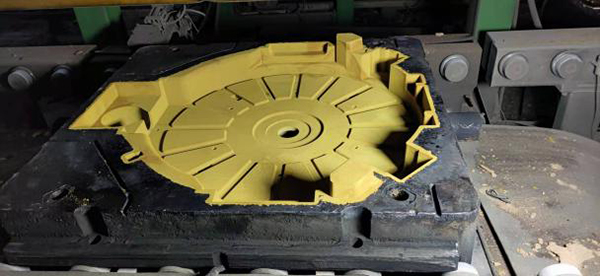The Versatile Uses of Resin Coated Sand
Resin coated sand (RCS) has emerged as a revolutionary material in various industries, particularly in metal casting. It represents a significant advancement over traditional sand casting methodologies, combining enhanced performance with versatility. This article explores the diverse applications and advantages of resin coated sand, shedding light on its pivotal role in modern manufacturing processes.
What is Resin Coated Sand?
Resin coated sand refers to a type of sand that has been treated with a resin binder, typically phenolic or furan resin, which enhances its properties and performance. The coating process involves mixing sand grains with a resin that thermosets upon heating. This transformation results in a material that boasts high strength, low thermal expansion, and excellent resistance to thermal shock. Key characteristics make resin coated sand an attractive choice for a wide array of industrial applications.
Applications in Metal Casting
One of the primary uses of resin coated sand is in the metal casting industry. The improved strength and dimensional accuracy provided by RCS allow for the production of intricate and precise castings, essential for various high-performance components. Automotive, aerospace, and machinery parts benefit immensely from this technology, as it enables manufacturers to create more complex designs while minimizing defects. The use of resin coated sand also reduces the time and costs associated with mold preparation, making it an economically viable option.
Advantages for Foundries
The switch to resin coated sand offers several advantages over traditional green sand casting. First, the surface finish of castings produced using RCS is significantly superior, resulting in less need for additional machining and finishing processes. This translates into both cost savings and shorter production times. Moreover, the superior flowability of RCS allows for better filling of molds, ensuring that intricate details are captured accurately, which is critical for certain applications.
resin coated sand uses

Additionally, resin coated sand exhibits remarkable thermal stability, which helps in maintaining the integrity of the mold during the casting process. This stability not only improves the consistency of the final product but also reduces the likelihood of casting defects such as warping or mold collapse. Consequently, foundries utilizing resin coated sand can achieve higher yields of quality castings, enhancing their overall productivity.
Use in Other Industries
Beyond metal casting, resin coated sand finds applications in several other sectors. For instance, in the oil and gas industry, it is used in hydraulic fracturing operations where proppants made from RCS enhance the efficiency of resource extraction. The resin-coated proppants help to keep fractures open, facilitating a more effective flow of oil or gas, thus improving recovery rates.
Furthermore, resin coated sand is gaining traction in the construction industry. It serves as a high-quality base material in the production of concrete and asphalt, providing improved strength and durability. Its application in the manufacture of composite materials showcases its versatility, allowing for the creation of products that meet specific performance criteria.
Environmental Considerations
While the uses of resin coated sand are diverse and beneficial, it is essential to address environmental concerns associated with its production and disposal. As industries strive for sustainability, research continues into eco-friendly resins and recycling methods for used resin coated sand. Innovations in this area can help reduce the environmental footprint of manufacturing processes while maintaining the performance advantages of RCS.
Conclusion
Resin coated sand has firmly established itself as a vital material across various industries, particularly in metal casting. Its superior properties confer numerous advantages, enabling manufacturers to produce high-quality, complex components efficiently. As technology advances, the potential applications of resin coated sand are set to expand, offering solutions that meet the growing demands of modern industry. Balancing these advancements with environmental responsibility will be crucial in harnessing the full potential of this versatile material, ensuring its beneficial use well into the future.
Post time:Νοέ . 25, 2024 10:25
Next:Understanding Sand Types for Effective Metal Casting Processes and Techniques
